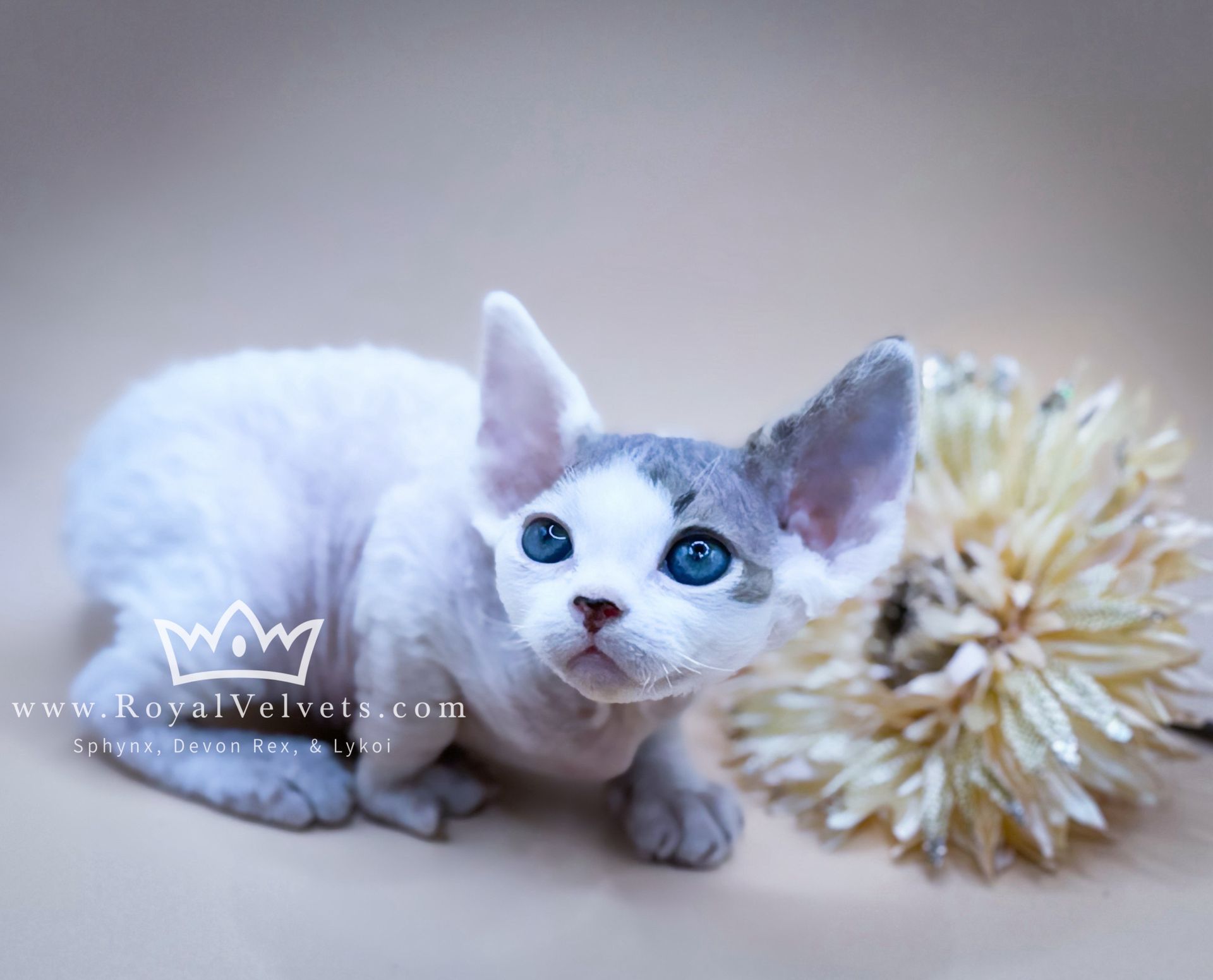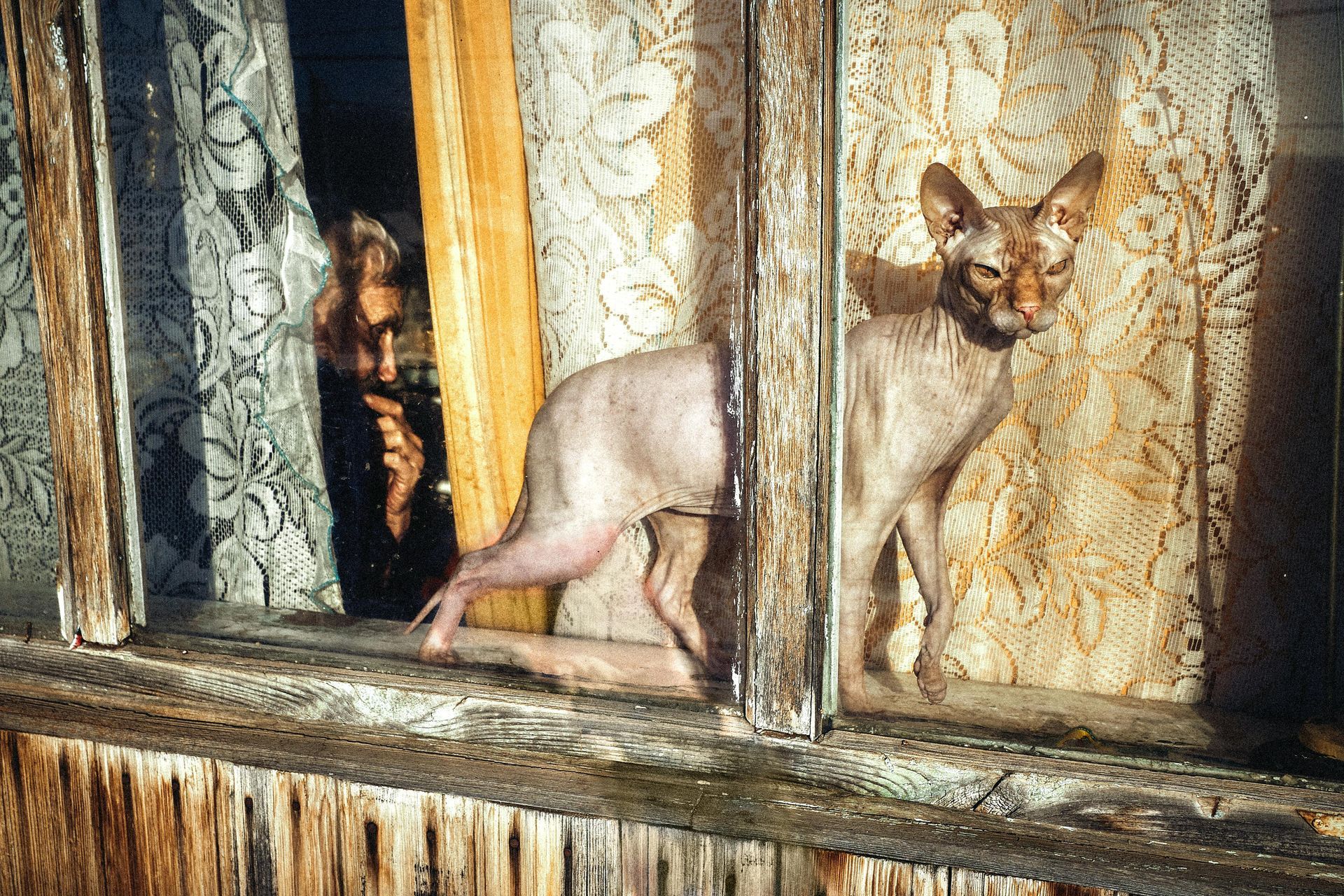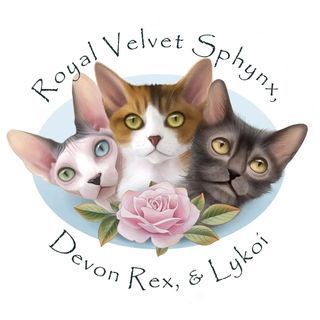For the passionate cat enthusiast, understanding the unique health nuances of different breeds is paramount. Hypertrophic Cardiomyopathy, or HCM, is a term that might ring familiar to many who delve into the feline world, especially when considering breeds like the Sphynx, Lykoi, and Devon Rex. As a potential or current cat owner, knowledge of this condition can not only help in early detection but also in providing the best care to your feline friend. In this comprehensive guide, we'll shed light on HCM, its implications for the aforementioned breeds, and the proactive steps to ensure a cat's healthy and fulfilling life.
What is HCM?
Hypertrophic Cardiomyopathy (HCM) stands as the most common heart disease in cats. It's characterized by the thickening of the heart muscle, particularly the ventricular walls, without any apparent cause. This thickening can hinder the heart's ability to pump blood efficiently, potentially leading to other complications like congestive heart failure.
Although the exact causes of HCM in cats remain a topic of ongoing research, certain genetic factors and predispositions have been identified, especially in particular breeds. Given its silent nature, many cats with HCM might show no obvious symptoms until the disease has progressed significantly, underscoring the importance of early detection and regular health screenings.
HCM in Sphynx, Lykoi, and Devon Rex
When it comes to heart health in felines, not all breeds share the same risks. Though any breed of cat can develop HCM - Sphynx, especially, has a noted predisposition to HCM. While it's essential to approach this with caution, it's equally crucial to have an informed perspective.
Sphynx: This breed, celebrated for its hairless beauty and affectionate nature, has a well documented history with HCM. Research suggests that a significant percentage of Sphynx cats can develop this condition, with genetics playing a pivotal role. Diet and environment can also play a role in the development of HCM. Currently there is only one genetic marker that has been discovered for HCM in sphynx. And is thought to be responsible for up to 60% of the documented cases of HCM. It is believed that there is one additional genetic marker that is responsible for the remaining 40% but has not yet been discovered. There is still a lot of research that needs to be done, in regards to the HCM gene(s). But should still be used as a tool in breeding. That is why it is still so crucial that proper screening is done yearly.
Lykoi: Often referred to as the "werewolf cat" due to its unique appearance, the Lykoi's relationship with HCM is still under study. However, initial findings highlight a potential genetic linkage to the disease, making it a point of attention for breeders and owners alike. Yearly screening is recommended.
Devon Rex: With its large eyes and elf-like ears, the Devon Rex is a breed many fall in love with. But like the Sphynx, there's a known correlation with HCM. While not as pronounced as in the Sphynx, Devon Rex owners should remain vigilant about regular heart screenings too.
It's essential to note that while these breeds might have a predisposition, it doesn't guarantee the onset of HCM in every individual cat. Responsible breeding practices, health screenings, and early detection remain the best defense against this heart ailment.
Signs and Symptoms
Awareness is the first line of defense against many health conditions, and this is especially true for HCM. Recognizing early warning signs can be the difference between timely intervention and irreversible complications. Here are some symptoms cat owners should keep an eye out for:
Difficulty Breathing: Cats with HCM might exhibit labored breathing or breathe rapidly, even when at rest.
Lethargy: A noticeable decrease in activity levels or a reluctance to play can be indicators.
Faint or Collapse: In advanced cases, the cat might faint or collapse due to decreased oxygen circulation.
Loss of Appetite: A sudden disinterest in food or weight loss might suggest a possible heart issue.
Heart Murmurs: While not always a definitive sign of HCM, heart murmurs detected during vet check-ups could be indicative of the condition.
It's crucial to understand that these symptoms can also be associated with other health issues. Hence, regular veterinary check-ups, including heart screenings, play an indispensable role in early detection and accurate diagnosis.
Treatment and Management
When faced with an HCM diagnosis, many cat owners might feel overwhelmed. However, with appropriate care and management, many cats diagnosed with HCM can still lead long, comfortable lives. Here's how:
Medication: There are several drugs available that help manage HCM symptoms. Beta blockers and calcium channel blockers, for instance, can help relax the heart muscle and reduce the heart's workload.
Dietary Changes: A low-sodium diet can assist in reducing fluid buildup in cats with HCM. The absence of taurine in the diet is known to cause heart disease in cats. Always consult with your veterinarian about the best dietary choices for your feline.
Regular Check-ups: Regular veterinary visits are imperative. They allow for the early detection of potential complications and adjustments to treatment plans as needed.
Stress Reduction: Minimizing stress is vital. A calm, stable environment can reduce the strain on a cat's heart. Consider creating a serene sanctuary or using feline pheromone diffusers to promote relaxation.
Stay Informed: As research on HCM progresses, new treatments and insights might emerge. Stay updated and maintain open communication with your vet.
Remember, while an HCM diagnosis might seem daunting, with the right approach and dedicated care, your beloved feline can continue to thrive. And if you're ever in doubt, seeking a second opinion or consulting with a veterinary cardiologist can offer further clarity and peace of mind.
New research and treatment for HCM: HCM Treatment
Conclusion
Hypertrophic Cardiomyopathy (HCM) might sound intimidating, especially when associated with cherished breeds like the Sphynx, Lykoi, and Devon Rex. However, with awareness, regular screenings, and informed care, managing HCM becomes less daunting.
While some breeds have a predisposition to HCM, it's vital to remember that each cat is unique. Not every individual will develop this heart condition, but being equipped with knowledge ensures that you're prepared should the need arise.
Until the other genetic markers are discovered - we may never eradicate HCM completely from our cats. The best tool we have is to track our pedigrees/lines and to screen all of our cats yearly for HCM. To include cats that are no longer in our breeding program & pet siblings of our breeding clan. We encourage all of our adopters to do the same as it is important for us to track our lines for health.
If you're considering welcoming one of these stunning breeds into your home, or if you're already a proud cat parent, prioritize their heart health. Regular vet visits, early detection, and a loving environment can make all the difference.
If you're
searching for a kitten with a strong lineage and thorough health screenings, consider
Royal Velvets Cattery. Our commitment to feline health and well-being stands unparalleled.


